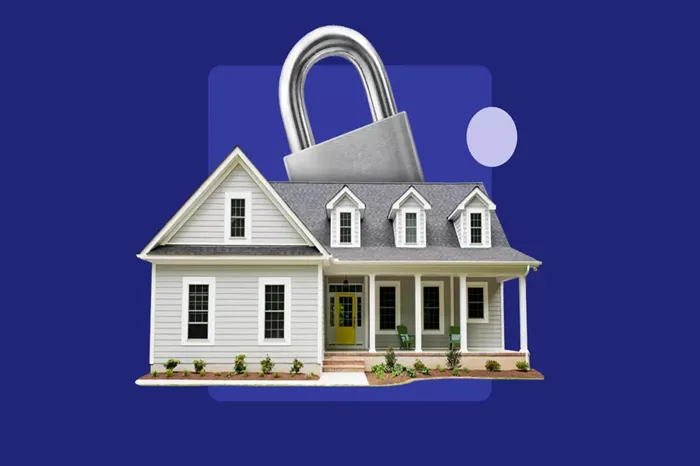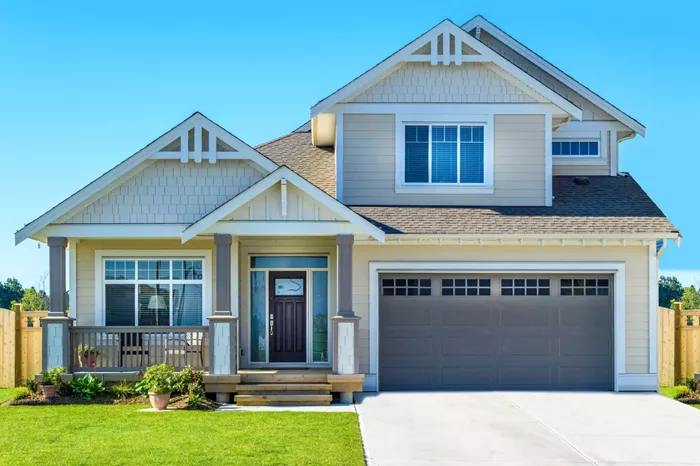Vacant home insurance is a specialized form of coverage designed to protect properties that are unoccupied for extended periods. Understanding what vacant home insurance entails, its importance, and how it differs from standard homeowners insurance is crucial for those managing an unoccupied property. This comprehensive guide will explore the various aspects of vacant home insurance, including coverage options, key differences from standard policies, and when it is necessary to consider this type of insurance.
Understanding Vacant Home Insurance
Vacant home insurance is specifically tailored for properties that are not regularly inhabited. Unlike standard homeowners insurance, which assumes the property is occupied, vacant home insurance addresses the unique risks associated with an empty house.
Why Do You Need Vacant Home Insurance?
Properties that remain vacant for extended periods face different risks compared to occupied homes. These risks include vandalism, theft, and damage from weather-related incidents. Standard homeowners insurance policies typically do not provide adequate coverage for these increased risks.
Increased Risk of Vandalism
An empty house can become a target for vandalism. Vandals may damage the property or steal valuable items. Vacant home insurance provides protection against such risks, covering the cost of repairs and losses due to vandalism.
Higher Chance of Theft
With no one around to observe suspicious activities, vacant homes are more susceptible to theft. Vacant home insurance offers coverage for stolen items and property damage resulting from break-ins.
Damage from Weather Conditions
Vacant properties are also at risk of damage from weather events. For example, burst pipes during winter or roof damage from storms can be significant concerns. Vacant home insurance ensures that you are protected against these potential hazards.
Coverage Options in Vacant Home Insurance
Vacant home insurance policies can vary significantly depending on the provider and the specific needs of the property owner. Here are some common coverage options:
Property Protection
This covers the physical structure of the home against damage caused by various perils, including:
Fire
Windstorm
Vandalism
Property protection ensures that the cost of repairing or rebuilding the home is covered in case of damage.
Contents Coverage
If the vacant property contains valuable items, contents coverage protects against losses due to:
Theft
Vandalism
Damage
This includes protection for furniture, appliances, and other personal belongings left in the home.
Liability Coverage
Liability coverage is crucial if someone is injured on the vacant property. It protects the property owner from legal claims and medical expenses resulting from accidents that occur on the premises.
Loss of Rental Income
For properties intended to be rented out, loss of rental income coverage can compensate the owner for lost rent due to a covered peril that makes the property uninhabitable.
Key Differences Between Vacant and Standard Homeowners Insurance
Understanding the distinctions between vacant home insurance and standard homeowners insurance is essential for selecting the right policy. Here are the main differences:
Occupancy Requirements
Standard Homeowners Insurance: Assumes the property is occupied by the owner or tenants.
Vacant Home Insurance: Specifically designed for properties that are not regularly inhabited.
Standard homeowners insurance may become void or offer limited coverage if the home is vacant for an extended period.
Coverage for Risks
Standard Homeowners Insurance: May not cover risks associated with an unoccupied property, such as vandalism and theft.
Vacant Home Insurance: Provides additional coverage for these increased risks.
Vacant home insurance addresses the unique hazards that vacant properties face, offering protection that standard policies might not.
Premium Costs
Standard Homeowners Insurance: Generally lower premiums, assuming the property is occupied.
Vacant Home Insurance: Higher premiums due to the increased risk associated with an unoccupied property.
Insurance providers set premiums based on the likelihood of claims, which is higher for vacant homes.
When Should You Consider Vacant Home Insurance?
Several scenarios may warrant the need for vacant home insurance:
Selling a Property
Vacant Home Insurance: Protects the property during the interim period when the home is unoccupied until it is sold.
Renovations
Vacant Home Insurance: Ensures the home is protected while undergoing significant renovations that make it uninhabitable.
Seasonal Homes
Vacant Home Insurance: Provides coverage for seasonal or vacation homes that are empty for part of the year.
Inherited Properties
Vacant Home Insurance: Covers properties that are not immediately occupied or rented out after being inherited.
How to Obtain Vacant Home Insurance
Securing vacant home insurance involves several key steps:
Evaluate Your Needs
Determine Coverage: Assess the level of coverage required based on the specific risks associated with your property.
Consider Factors: Factor in the value of the property, contents, and potential liabilities.
Shop Around
Compare Policies: Obtain quotes from different insurance providers to find the best coverage options and premiums.
Review Terms: Carefully review the terms and conditions of each policy.
Consult with an Insurance Agent
Specialized Advice: Work with an insurance agent who specializes in vacant home insurance to navigate the complexities of the policy.
Tailored Solutions: Ensure that you get coverage that suits your specific needs.
Review and Update Your Policy
Regular Review: Regularly review your vacant home insurance policy to ensure it continues to meet your needs.
Policy Adjustments: Make adjustments if there are changes to the property or its occupancy status.
See Also: What Is Additional Interest on Renters Insurance
Common Exclusions in Vacant Home Insurance
Understanding what is not covered by vacant home insurance is crucial. Common exclusions may include:
Wear and Tear
Normal Wear: Damage resulting from normal wear and tear is typically not covered.
Examples: Includes issues such as roof deterioration or plumbing leaks due to aging.
Pre-Existing Conditions
Existing Damage: Pre-existing conditions or damage that existed before purchasing the policy may not be covered.
Address Issues: Address any existing issues before obtaining insurance.
Certain Types of Damage
Specific Exclusions: Some policies may exclude coverage for certain types of damage.
Additional Coverage: Examples include flooding or earthquake damage, which may require additional coverage.
Conclusion
Vacant home insurance is a crucial consideration for property owners with unoccupied homes. Understanding what vacant home insurance is, why it is necessary, and the coverage options available can help you protect your property from potential risks. By evaluating your needs, shopping around for the best policy, and consulting with insurance professionals, you can ensure that your vacant property remains safeguarded against unexpected events.
In summary, vacant home insurance provides essential protection for properties that are not regularly occupied. It addresses risks that standard homeowners insurance may not cover and offers peace of mind for property owners during periods of vacancy. Whether you are selling, renovating, or managing a seasonal home, this specialized insurance is designed to offer financial security and protection against unforeseen circumstances.
FAQs
1. What is the main difference between vacant home insurance and standard homeowners insurance?
Vacant home insurance differs significantly from standard homeowners insurance primarily in its coverage for risks associated with unoccupied properties. While standard homeowners insurance assumes that the property is regularly inhabited and provides coverage for risks such as fire, theft, and liability, it often excludes or limits coverage when the home is vacant for an extended period. Vacant home insurance, on the other hand, is specifically designed to address the increased risks associated with an empty property, such as vandalism and theft. This type of insurance also typically offers extended coverage for damage caused by weather-related events. The premiums for vacant home insurance are usually higher due to the increased risk. Therefore, if your home is unoccupied for a significant period, vacant home insurance is essential to ensure you have adequate protection.
2. When should I consider purchasing vacant home insurance?
You should consider purchasing vacant home insurance in several scenarios. If you are in the process of selling a property and it remains unoccupied until a buyer is found, this type of insurance will protect the property during this transitional period. Similarly, if you are renovating a home and it becomes uninhabitable, vacant home insurance will cover potential risks associated with the empty property. Seasonal or vacation homes that are not used year-round also benefit from this insurance. Additionally, if you inherit a property and it is not immediately rented out or occupied, vacant home insurance will provide coverage during the interim period. Ensuring you have the right insurance in these situations will help mitigate risks and protect your investment.
3. What types of coverage are typically included in a vacant home insurance policy?
Vacant home insurance policies typically include several types of coverage to address the specific risks associated with unoccupied properties. Property protection covers the physical structure of the home against damage from perils such as fire, windstorm, and vandalism. Contents coverage protects valuable items inside the home from theft or damage. Liability coverage is crucial if someone is injured on the property, safeguarding you from legal claims and medical expenses. Additionally, some policies offer loss of rental income coverage, which compensates for lost rent if the property is intended for rental but becomes uninhabitable due to a covered peril. The exact coverage options may vary depending on the insurance provider and the specific policy.
4. Are there any common exclusions in vacant home insurance policies?
Yes, vacant home insurance policies often have common exclusions that you should be aware of. One typical exclusion is damage resulting from normal wear and tear, such as roof deterioration or plumbing issues due to aging. Pre-existing conditions, or damage that existed before the policy was purchased, are also commonly excluded. Certain types of damage, such as flooding or earthquake damage, may not be covered unless additional coverage is obtained. It’s essential to review the terms and conditions of your policy carefully to understand what is not covered. Consulting with an insurance agent can help clarify these exclusions and ensure you have appropriate coverage for your needs.
5. How can I find the best vacant home insurance policy?
Finding the best vacant home insurance policy involves several steps. Start by evaluating your specific needs, such as the value of your property, the contents inside, and any potential risks associated with the vacancy. Next, shop around and compare quotes from different insurance providers to find the best coverage options and premiums. Reviewing the terms and conditions of each policy is crucial to ensure that it meets your requirements. Working with an insurance agent who specializes in vacant home insurance can provide valuable insights and help you navigate the policy options. Regularly reviewing and updating your policy will also ensure that it continues to meet your needs as circumstances change.






















